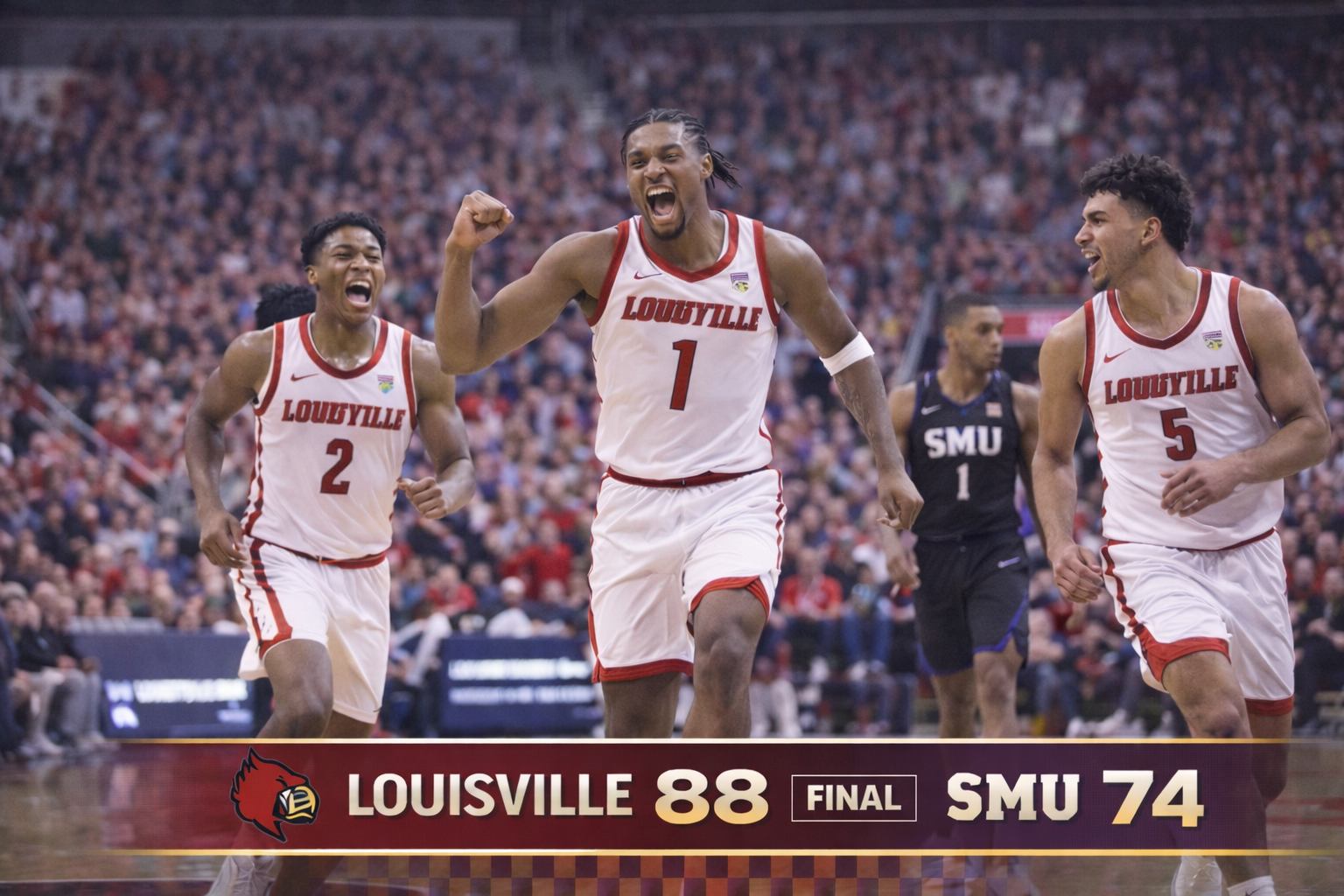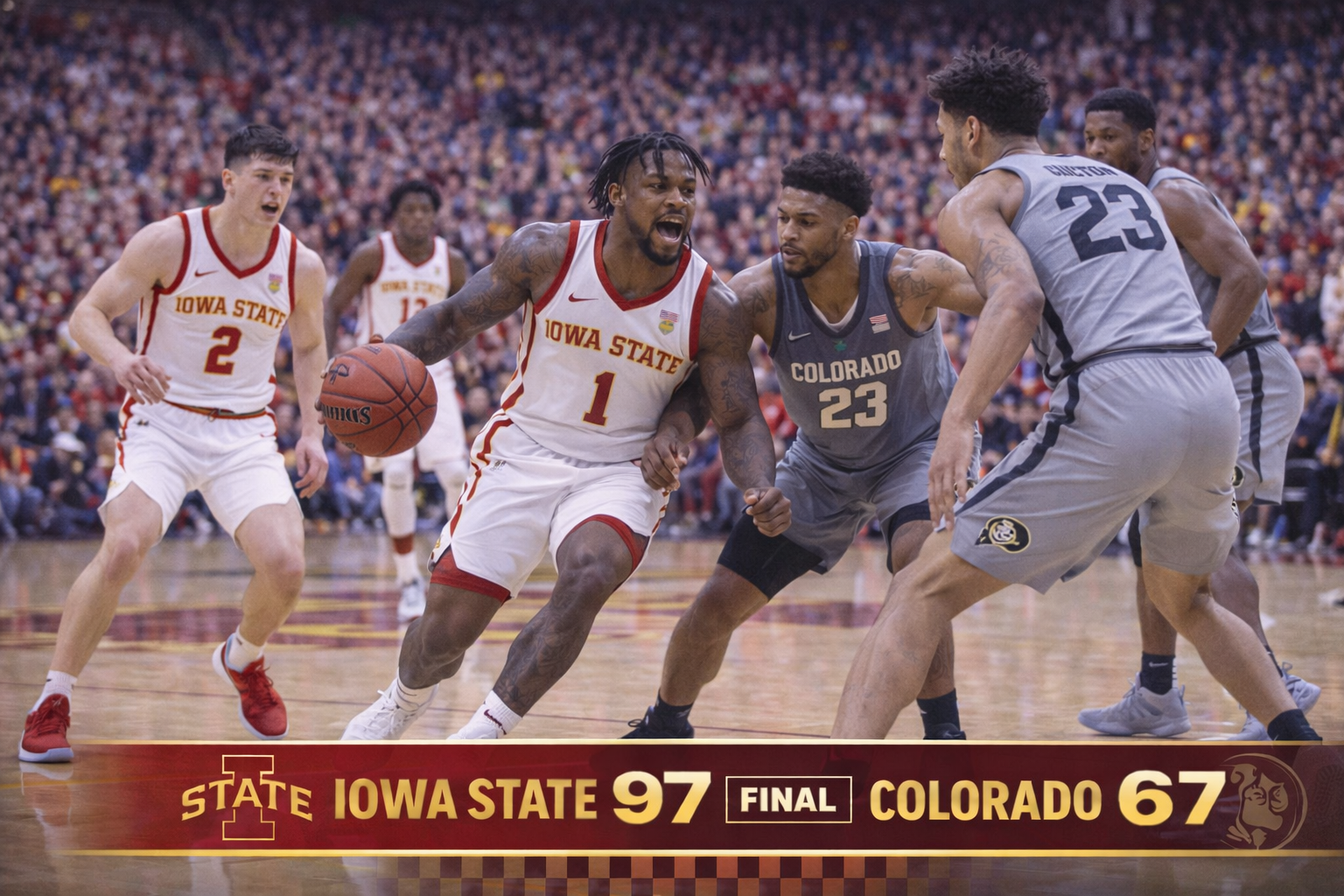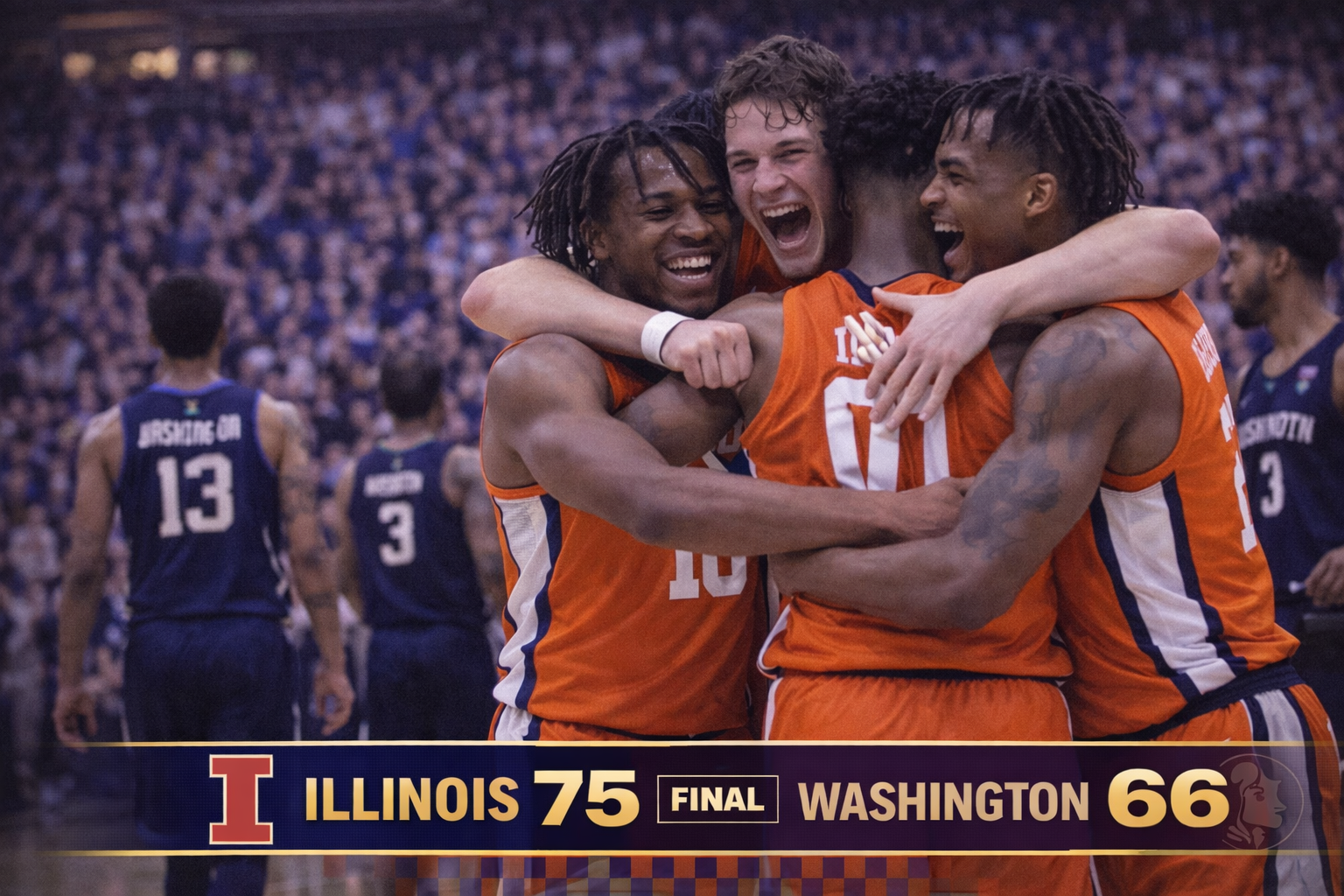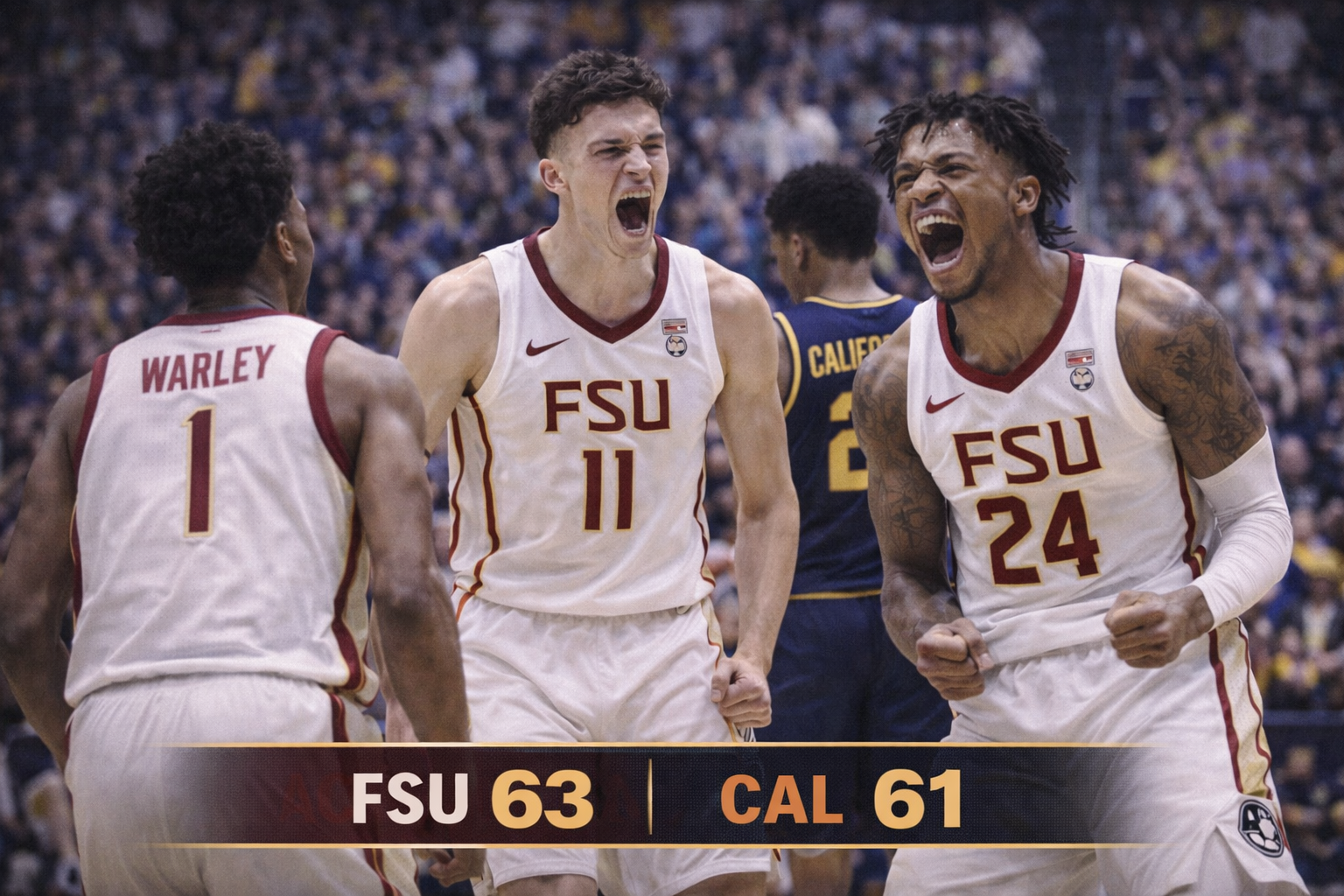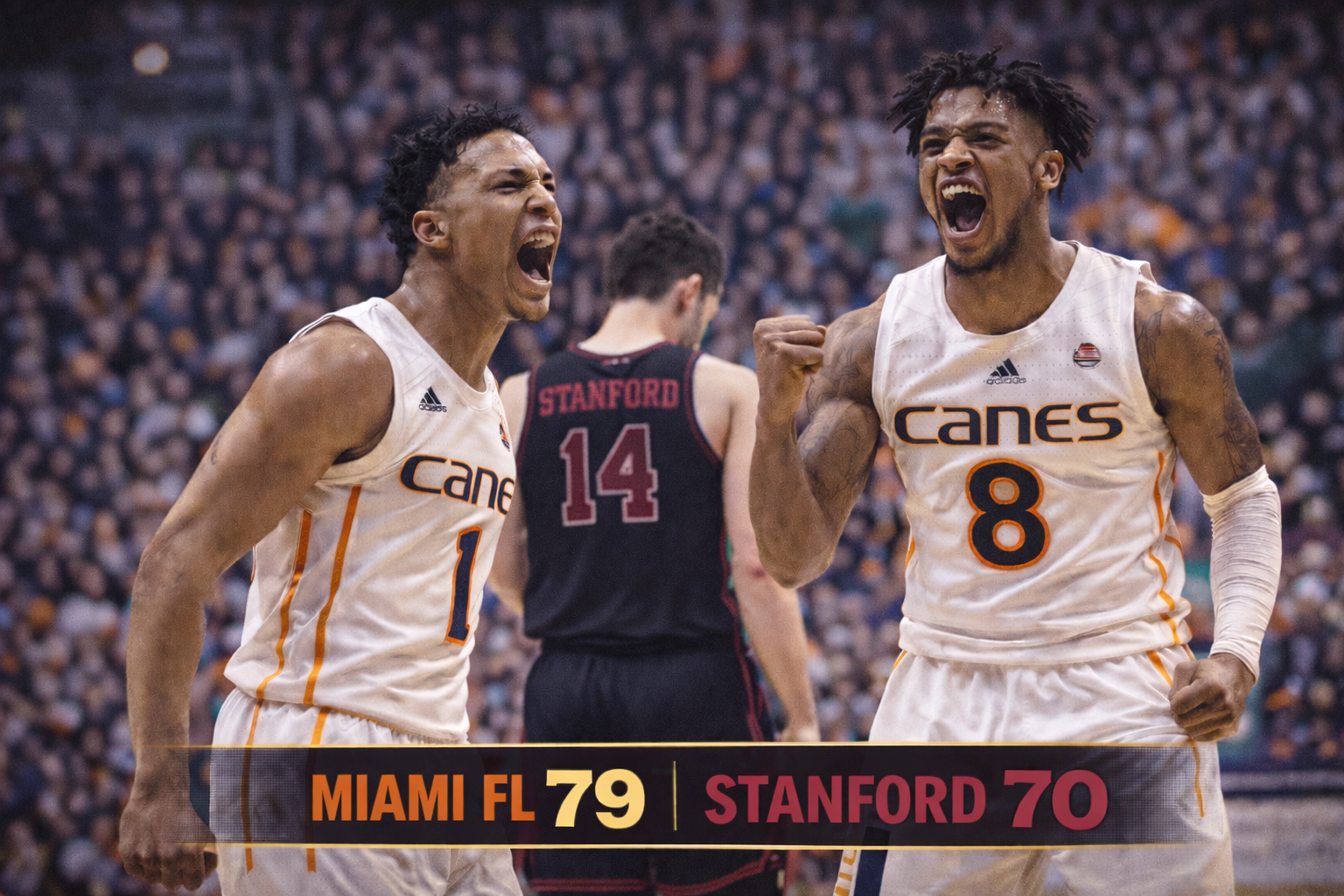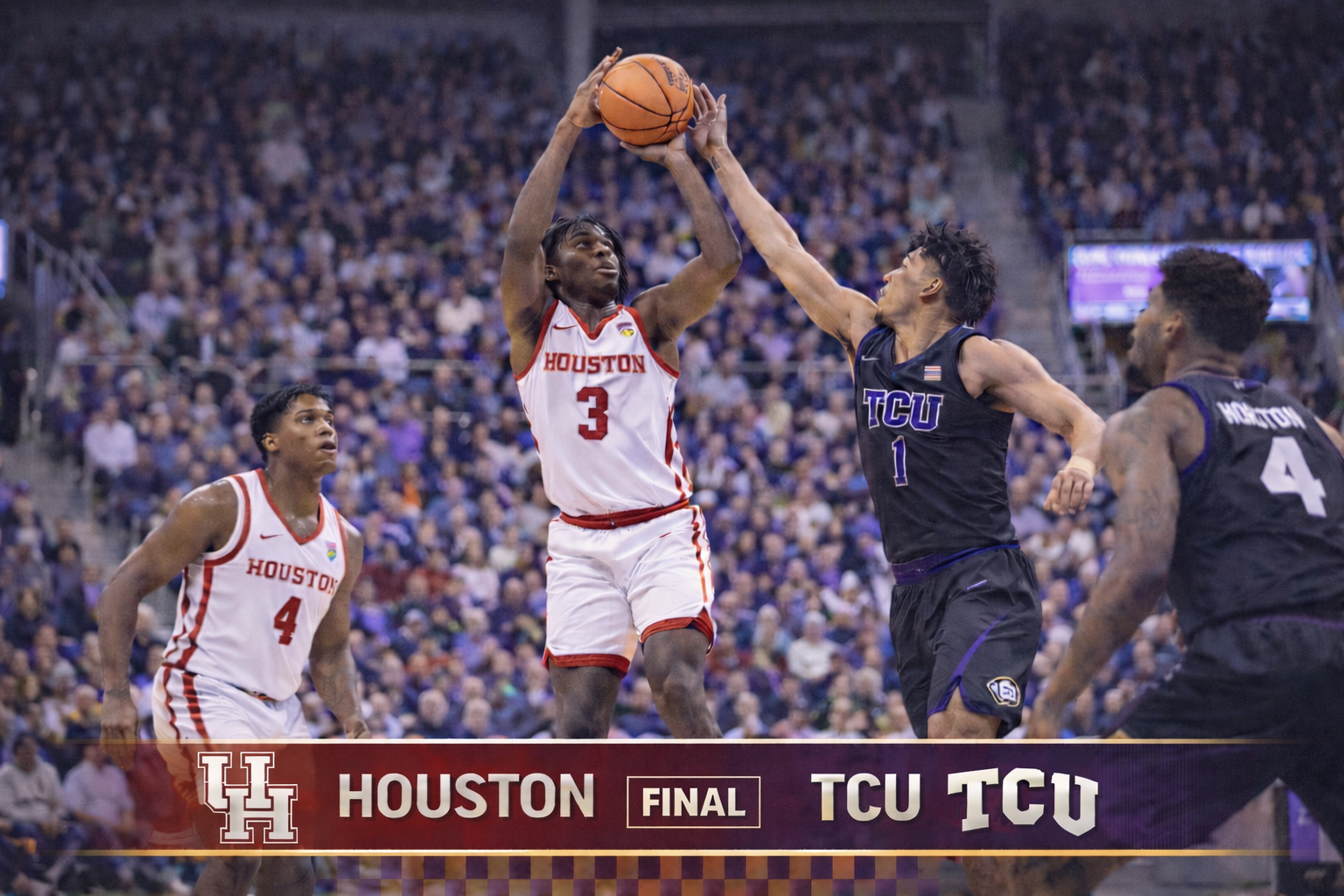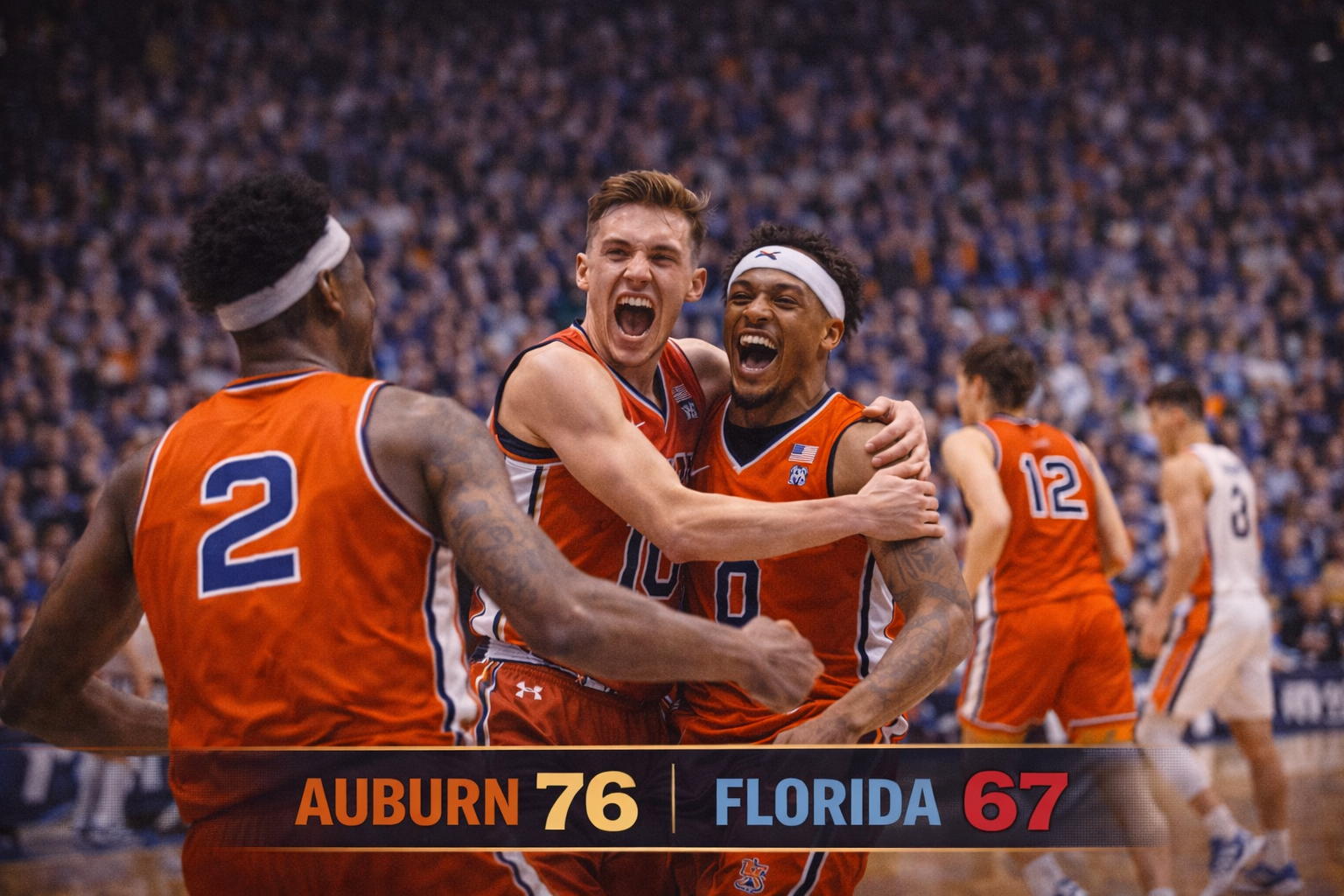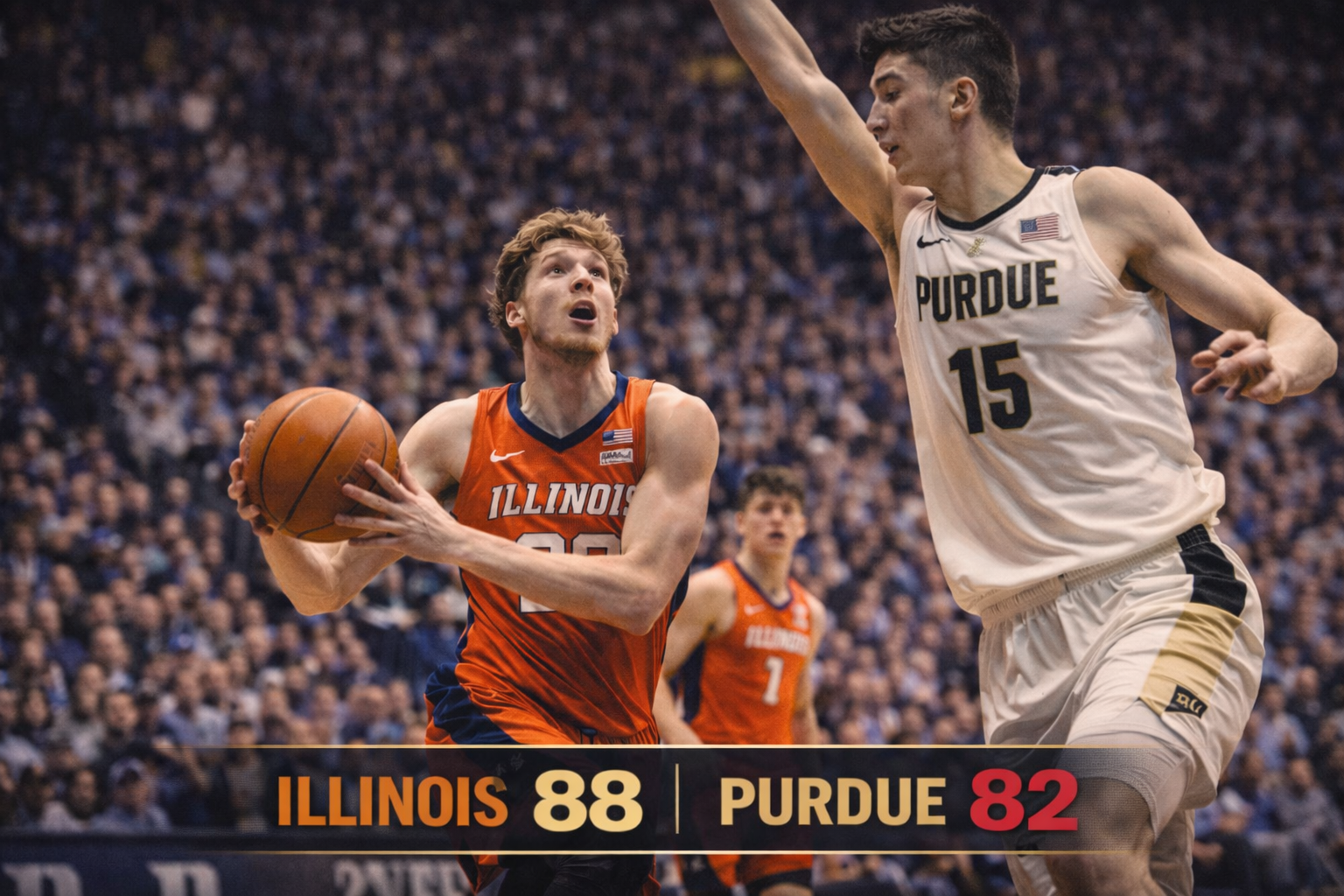Texas Dominates No. 6 Oklahoma 23–6 in Red River Rivalry Showdown
Longhorns’ Defense Shines as Arch Manning Leads Balanced Attack
DALLAS, Texas — The annual Red River Rivalry delivered another classic chapter Saturday at the Cotton Bowl, but this time, it was Texas that dictated every phase of the game. Behind a smothering defense and a composed outing from quarterback Arch Manning, the Longhorns overpowered No. 6 Oklahoma 23–6, reclaiming the Golden Hat trophy and reasserting their place among the nation’s elite.
The victory marked the second straight year Texas has defeated Oklahoma and the first time since 2008–09 that the Longhorns have won consecutive games in the historic rivalry. More importantly, it gave Texas (4–2, 1–1 SEC) its first victory over a top-10 opponent this season, while the Sooners (5–1, 1–1) suffered their first loss of the year.
Manning completed 21 of 27 passes for 166 yards and one touchdown, spreading the ball across multiple receivers with precision and poise. Running back Quintrevion Wisner powered the ground attack with 94 rushing yards on 22 carries, adding 35 receiving yards to cap off a productive afternoon. Texas finished with 302 total yards, converting on third down at an extraordinary rate — 11-of-12 — while controlling time of possession and tempo throughout the contest.
First Half: Oklahoma Strikes Early, but Texas Responds
Oklahoma opened the scoring with a 42-yard field goal from Tate Sandell after an early defensive stop. On the Sooners’ next possession, a defensive stand by Texas forced another field goal, giving Oklahoma a 6–0 lead at the end of the first quarter. But from that point forward, the game shifted decisively in the Longhorns’ favor.
The turning point came midway through the second quarter when Texas defensive back Malik Muhammad intercepted a pass from Oklahoma quarterback John Mateer near midfield. The takeaway energized the Texas sideline and set up a short drive that resulted in a 22-yard field goal from Mason Shipley, trimming the deficit to 6–3.
The Longhorns’ defense struck again late in the half when Muhammad intercepted another pass — this time in the end zone — preventing an Oklahoma score before halftime. It marked the first multi-interception performance by a Texas player in the Red River Rivalry since 2016. Although Texas trailed 6–3 at the break, the second half would belong entirely to the Longhorns.
Second Half: Manning and the Defense Take Over
Texas wasted no time seizing control after the break. Manning orchestrated a 75-yard drive on the opening possession of the third quarter, completing all six of his pass attempts. He capped the drive with a 12-yard touchdown strike to wide receiver DeAndre Moore Jr., giving Texas its first lead at 10–6 with 7:49 remaining in the third quarter.
On Oklahoma’s ensuing drive, Texas’ front seven applied relentless pressure. Edge rusher Colin Simmons recorded his third consecutive game with a sack, pushing the Sooners out of scoring range. After another Texas stop, Shipley drilled a 48-yard field goal — the longest of his season — extending the Longhorns’ lead to 13–6 heading into the fourth quarter.
The Texas defense continued to dominate, holding Oklahoma to just 88 total yards in the second half and forcing three interceptions overall — the most by Texas in the rivalry since 2002. Linebackers Brad Spence and Lance Jackson combined for a critical late-game sack that halted Oklahoma’s final drive, punctuating a complete defensive performance.
Fourth Quarter: Niblett’s Punt Return Breaks the Game Open
With less than 10 minutes remaining, Texas delivered the knockout blow. Following another defensive stand, freshman Ryan Niblett fielded a 48-yard punt near his own 25-yard line, sprinted up the right sideline, and broke free for a 75-yard touchdown — his first career return score and the longest punt return in the rivalry since 2013. The play sent the Texas sideline and the Cotton Bowl crowd into a frenzy, extending the lead to 20–6 with 9:59 left.
Oklahoma’s offense, desperate to respond, managed only brief flashes of rhythm. A promising drive late in the fourth quarter stalled at the Texas 27-yard line after Mateer was sacked on consecutive plays and then threw incomplete on fourth down. Texas capitalized on the ensuing possession with Shipley’s third field goal of the day, this time from 39 yards, putting the game out of reach at 23–6.
From there, the Longhorns’ defense closed the door. On Oklahoma’s final drive, Mateer was sacked again — this time by a combination of Spence and Jackson — before Texas ran out the clock to secure the dominant win.
Defensive Brilliance Defines the Win
The hallmark of the Texas performance was its defensive intensity and precision. The Longhorns held Oklahoma without a touchdown — the first time they have done so against a top-10 opponent since 1979, when they blanked Missouri 21–0.
Texas limited Oklahoma to just 258 total yards, including 88 after halftime, and allowed the Sooners to convert only three of 13 third downs. The Longhorns also held their opponent under 100 rushing yards for the fifth time in six games this season.
Muhammad’s two interceptions led a defensive unit that thrived on disruption. Simmons, Spence, and Jackson combined for three sacks, while defensive backs Graceson Littleton and Jahdae Barron provided lockdown coverage on the outside. Linebacker Anthony Hill added five tackles and a pair of quarterback pressures, contributing to a group that swarmed to the football on every possession.
Special Teams and Offensive Efficiency
Texas’ special teams were equally instrumental in the win. In addition to Niblett’s electrifying return, Shipley remained steady, going 3-for-5 on field goals, including makes from 22, 48, and 39 yards. His two long-range conversions helped Texas maintain control even when drives stalled.
Offensively, Manning’s efficiency stood out. The sophomore quarterback finished with an 81 percent completion rate, including 11-for-12 passing on third downs — an exceptional mark that kept the offense moving and wore down Oklahoma’s defense.
Wisner’s physical running style complemented Manning’s precision. His 37-yard burst in the second quarter set up Texas’ first field goal, while his short-yardage consistency allowed the Longhorns to stay ahead of the chains. Wide receivers Moore Jr. and Parker Livingstone provided reliable options in the passing game, while tight end Gunnar Helm contributed key blocks that helped open running lanes.
Texas’ offensive line also deserves credit for protecting Manning, allowing just one sack against an Oklahoma defense that had averaged three per game entering the matchup.
Oklahoma’s Missed Opportunities
For the Sooners, the afternoon was one of frustration and missed chances. Quarterback John Mateer, making his return from hand surgery, threw for 202 yards but was intercepted three times — all at crucial junctures. Wideouts Deion Burks and Isaiah Sategna III each surpassed 60 receiving yards, while freshman Tory Blaylock led the team in rushing with just 33 yards.
Defensively, Oklahoma’s front seven made occasional stops, with Kendall Daniels leading the team with six tackles and Taylor Wein adding three tackles for loss. However, the Sooners failed to generate consistent pressure, allowing Manning to settle into rhythm throughout the second half.
The loss marked Oklahoma’s second straight in the Red River Rivalry, following a 34–3 defeat last season, and dropped them out of the ranks of the nation’s unbeaten teams.
Looking Ahead
With the victory, Texas improved to 65–51–5 all-time against Oklahoma in one of college football’s most storied rivalries. The Longhorns will travel to Lexington next week to face Kentucky, while Oklahoma heads to Columbia to take on South Carolina.
The win restored momentum to a Texas team that entered the contest needing a statement performance. For head coach Steve Sarkisian’s squad, it was proof of growth — a display of balance, discipline, and defensive excellence that reestablished the Longhorns as a force in the SEC.
From start to finish, the Longhorns outplayed, outcoached, and outlasted their fiercest rival, leaving Dallas with both the Golden Hat and a renewed sense of purpose for the rest of the season.
